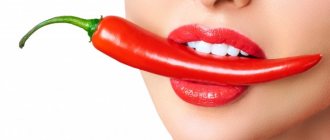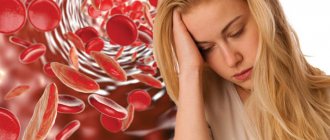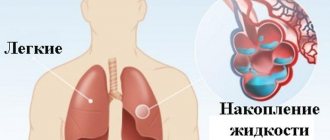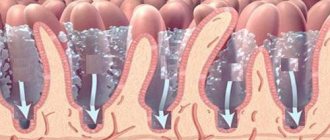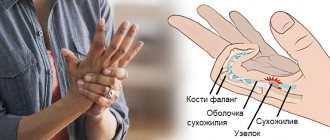sour taste in mouth
heartburn
gastritis
If a person, without consuming any food or drink, feels a dubious taste in his mouth other than a neutral one, then this, with a 90% probability, indicates the development of abnormalities in the digestive system. Depending on the nature of the pathological changes, the taste can be sour, sweet or bitter. If this symptom occurs, immediate consultation with a gastroenterologist is recommended, and in some cases, consultation with an endocrinologist or hepatologist may be required.
Burning sensation in the mouth and tongue - causes
Local factors:
- Decreased saliva secretion. The mucous membrane becomes dry, lips and tongue crack. Food and liquid irritate the damaged areas, and they sting quite severely.
- Fungal candidiasis. Popularly known as thrush. Fungi, during their rapid proliferation (which happens when the immune system is weakened), provoke a burning sensation in the oral mucosa and painful sensations.
- Hard dental deposits. The formation of tartar is accompanied by the simultaneous delamination of old layers. The separated particles affect the mucous membrane, causing an unpleasant reaction.
- Allergy. A burning sensation in the mouth is nothing new for those with intolerance to certain foods, medications, and even denture materials.
- Leukoplakia. Excessive keratinization on any part of the epithelium usually does not provoke tingling sensations, but this disease cannot be excluded from the list of possible persons involved.
- Diseases of the tongue. Desquamative glossitis, or “hairy” tongue, is a common cause of persistent burning sensation in the mouth. The papillae become very sensitive.
- Herpetic infection. The blisters, which quickly transform into erosions, cause severe itching and unbearable burning both in the normal state and when eating.
- Grinding of teeth. Unconscious movements of the teeth during sleep, called bruxism, automatically affects the tongue with the appearance of microtraumas on it, and, accordingly, a burning sensation.
- Lichen planus. Erosive damage to the mucous membrane, white ulcers haunt the patient during an exacerbation, causing severe discomfort.
General factors:
- Unbalanced diet
- Blood diseases
- Hormonal disbalance
- Stomach pathologies
- Nervous disorders
- Avitaminosis
- Insulin-dependent diabetes
- Bulimia
In these conditions, a burning taste in the mouth may appear and disappear, as it is a concomitant symptom.
Causes of bitterness in the mouth while eating
Sometimes you feel a bitter taste in your mouth while eating. When this phenomenon is one-time in nature, the cause may be the type and method of cooking.
But what to do if the bitterness in the mouth becomes chronic? First, you should consult a doctor. He will be able to determine what disease such a symptom relates to and then prescribe treatment. The main causes of bitterness in the mouth while eating are:
- Cholecystitis is an inflammatory process in the gallbladder, which is accompanied by painful sensations in the side, dry mucous membranes, and high body temperature.
- Dysfunction of internal organs. Diseases of the digestive organs, liver, kidneys, gall bladder.
- Poor nutrition. It is not recommended to eat fatty, fried, spicy, salty foods, soda, and fast food. As a result of their consumption, a feeling of bitterness may occur.
- Acid reflux, vomiting aftertaste. The cause of bitterness is gastric juice, which from the stomach begins to rise through the esophagus to the oral cavity.
- Disturbance of taste buds. The receptors that are responsible for the perception and recognition of taste stop working. All products that a person consumes do not differ in taste for him. This occurs due to excess amounts of phenylthiocabamide in the body.
- Hormonal changes in the body during pregnancy.
- Dental diseases of the teeth, gums, the body’s reaction to a filling or crown.
- Violation of acid-base balance. Accompanied by lethargy, muscle fatigue, joint pain.
If such a symptom appears after eating, it is recommended to adhere to the rules of a healthy diet. Avoid eating fatty, fried, salty, bitter, sour foods, soda, sweets, and baked goods. It is advisable not to convey that food should be easily processed and absorbed by the body.
How does burning in the mouth and tongue manifest?
The symptom is clearly noticeable, may occur sporadically and disappear on its own. This happens when taking bitter medicines or eating spicy foods (“fire” in the mouth). A slight irritation of the mucous membrane may bother you after dental procedures; this is quite normal.
True diseases can be assumed if:
- Dryness and burning in the mouth often appear in certain areas of the oral cavity
- Unpleasant sensations intensify and are accompanied by numbness
- The tingling becomes constant
In most patients, the burning sensation manifests itself in the morning, intensifies during the daytime and subsides towards night.
When and how often does the bitter taste occur?
From when bitterness appears in the mouth, we can guess what causes this symptom:
- During physical activity, if it is also accompanied by heaviness in the right side, it may be a sign of liver disease.
- In the morning - the reason most likely lies in problems with the liver and gall bladder.
- Only after eating too heavy, fatty foods, after overeating - diseases of the gallbladder, bile ducts, liver.
- Bitterness appears after any meal - diseases of the stomach, duodenum, gall bladder, and some liver pathologies.
- Short-term bitterness in the mouth - during a stressful situation or the use of medications that affect the liver and gastrointestinal tract.
- Constant bitterness in the mouth - a possible cause is cancer of the gastrointestinal tract, cholelithiasis, cholecystitis, endocrine or mental illness.
Diagnostics
How to find out what exactly caused the burning sensation in the mouth and tongue? Only a specialist can determine the reasons. First you need to visit the dentist. If there are no visible local causes that could cause this problem, you need to go to a therapist. The patient will be prescribed tests (urine, blood - general analysis and sugar, biochemical studies). It is necessary to exclude sexually transmitted diseases and AIDS. It would be useful to consult an endocrinologist - perhaps it is due to hormonal fluctuations. Based on complete information, a preliminary diagnosis can already be made. Get ready for the fact that at the same time you will have to visit a gynecologist, nutritionist, infectious disease specialist, oncologist and doctors of other specialties.
The main causes of bitterness
What does bitterness in the mouth indicate? There are actually a lot of reasons why a person begins to feel this. In this way, the body may try to “indicate” diseases of the digestive system or a gallbladder disease. This sensation may also be a sign of poor nutrition or taking medications of various spectrums for too long (mainly those used to treat the liver).
The main causes are diseases of the gastrointestinal tract (GIT):
- Diseases of the duodenum. Bile from the duodenum, entering the stomach, causes corrosion of its walls. Bile contains acids that cause a feeling of bitterness.
- Gastritis (see symptoms and treatment of gastritis). With this disease, the composition and amount of gastric juice produced by the body changes, the process is also accompanied by poor digestibility of proteins, fats, carbohydrates and other vitamins, and the removal of toxins worsens. Together, this causes heartburn, bad breath, constant belching and, accordingly, an unpleasant taste in the mouth.
- Gastric dyspepsia. The cause of the bitter taste may be difficult digestion caused by disruptions in the functioning of the stomach.
- Gastroesophageal reflux disease. This disease provokes surges of concentrated gastric juice to the very top of the esophagus, from where it enters the oral cavity. It can develop due to the abuse of spicy and fatty foods, as well as constant overeating (even healthy food rich in vitamins and minerals - an excess of it is also harmful).
- Disturbances in motor activity of the stomach. With reduced motility of the biliary tract, bile stagnates in them; with increased motility, there are sharp releases of bile into the duodenum, then into the stomach, esophagus and oral cavity, causing bitterness, burning and heartburn.
- Dysbacteriosis. Under normal conditions, a large number of beneficial bacteria live and function in the human intestine, capable of synthesizing vitamins, creating microflora and generally increasing the body’s immune strength. If the intestinal microflora is normal, then no problems are observed, but if an imbalance occurs, then dysbacteriosis appears, causing bitterness in the mouth.
- Giardiasis. A disease caused by the penetration of Giardia (intestinal parasites) into the body, causing disorders in the functioning of the small intestine. Nausea, bitterness occurs, and sleep is disturbed.
Dental diseases:
- Inflammation of the gums, mucous membrane of the tongue. This occurs if a person carelessly takes care of their teeth, and bad breath adds to the bitterness.
- Increased sensitivity to external interventions - implantation of dental crowns, dentures or fillings. The bitter taste is often caused by raw materials for dentures, fillings or gel for fixing an artificial jaw.
Other reasons include:
- If there is liver dysfunction (any disease), then increasing inflammatory processes negatively affect the production of bile and its transportation through the relevant systems of the body.
- Nervous system disorders, in which the peripheral nerves responsible for the taste buds and sense of smell become inflamed, also alter the perception of the taste of food and make it bitter.
- At moments when the level of glucose in the blood rises, vision begins to deteriorate, a feeling of weakness and heat appears in the palms and soles, along with this, a bitter taste becomes very noticeable in the mouth.
- General intoxication of the body, which is observed when it is damaged by heavy metals such as mercury, lead, copper and others.
- Disturbances in the functioning of the endocrine system lead to the fact that the thyroid gland, together with the adrenal glands, begins to produce huge amounts of adrenaline. As a result of this, the bile ducts narrow, which provokes the release of bile towards the esophagus and the appearance of bitterness.
- Lack of zinc - an important trace element that is necessary for the normal functioning of cells and taste buds in particular.
- Smoking for many years. Long-term exposure to tobacco and its derivatives has a detrimental effect on the taste buds, as a result of which the smoker begins to feel an unpleasant bitterness.
Burning mouth - treatment
The main goal is to eliminate the root cause found at the diagnostic stage. If it is not associated with dental pathology, the oral cavity is sanitized, worn fillings are removed and new fillings are placed, and dentures are corrected. Stomatitis and glossitis often require antibiotics. Candidiasis is treated with antifungal drugs.
General diseases are treated by a doctor of appropriate specialization, prescribing complex treatment depending on the type of pathology. Measures are being taken to improve immunity, normalize stomach function, stabilize blood glucose levels, and treat neuroses.
At home, you can alleviate the condition by rinsing your mouth with warm infusions of oak bark, sage, and chamomile. 1 tbsp is enough. per standard glass of water. Brew like tea, let cool and rinse your mouth 2-3 times a day. To prevent a burning sensation in the mouth, avoid or at least minimize spicy foods and caustic ingredients in your diet; it is better to avoid alcohol altogether.
Treatment
Help before diagnosis
Many patients feel relief after rinsing their mouth with water and a small amount of lemon juice or a weak solution of soda. It is important to maintain oral hygiene: brush your teeth thoroughly 2 times a day, rinse your mouth with water after each meal, and use dental floss if necessary. In order not to suffer from bitterness in the morning, you should refrain from fatty foods and smoked foods at dinner.
Pregnant women are advised to eat often, in small portions, so as not to overload the gastrointestinal tract. After eating, you should not take a horizontal position or engage in physical labor. If an unpleasant taste in the mouth is accompanied by dyspeptic disorders, pain or a progressive deterioration of the general condition, it is important to consult a doctor in time to determine why the taste occurs in the mouth.
Conservative therapy
A specific taste occurs in many diseases, so only the main directions of therapy can be identified, and the selection of an individual set of therapeutic measures is carried out by a specialist. When caries is detected, treatment by a dentist is indicated: usually, after the elimination of chronic foci of infection, the unpleasant taste disappears. Most often used in therapeutic regimens:
- Antiseptics
. Regular rinsing of the oral cavity with a solution of chlorhexidine and its analogues ensures moisturizing and cleansing of the mucous membrane, and prevents the proliferation of pathogenic microorganisms. For stomatitis with pain, solutions of local anesthetics are used. - Antacids
. If the symptom is due to hyperacid conditions, modern non-absorbable drugs that quickly reduce acidity are recommended. A course of treatment with antisecretory agents is often required to achieve a lasting effect and healing of mucosal defects. - Choleretic drugs
. In case of biliary pathology, the composition of bile is improved and its release into the duodenum is stimulated, due to which the bitterness disappears. The drugs can be combined with hepatoprotectors to protect the liver from the effects of bile acids. - Antidotes
. Heavy metal poisoning is an indication for the prescription of specific complexones that bind and remove toxic substances from the blood. To speed up detoxification, large volumes of crystalloid solutions are administered intravenously.
Treatment of hypersalivation
There is no single treatment method for all cases. However, you can use methods to reduce the activity of the salivary glands - sometimes they are recommended by doctors as an addition to complex therapy.
- Reception of sorbents: activated carbon, polysorb, etc.
- Taking medications prescribed by a doctor.
- Exercise therapy, massage (most often prescribed for children).
- Botulinum toxin injections.
In rare exceptions, the salivary glands are partially removed, but the downside is that there is a risk of damaging the facial nerve.
Which doctors will help you cope with this disease? Dentist, gastroenterologist, endocrinologist, neurologist, infectious disease specialist, etc.
Food poisoning and bitter saliva
Foodborne toxic infection is very often accompanied by a taste of bile due to general toxicosis of the body and malfunctions of the digestive system. This includes vomiting bile and bile reflux. Often, after poisoning, a person temporarily lacks appetite. Food does not enter the stomach, and bile, despite this, is produced by the liver around the clock. It stagnates and some of it is thrown into the stomach and esophagus.
It takes time to normalize the functioning of the digestive tract after the symptoms of poisoning disappear. Then the unpleasant taste sensations will pass.


